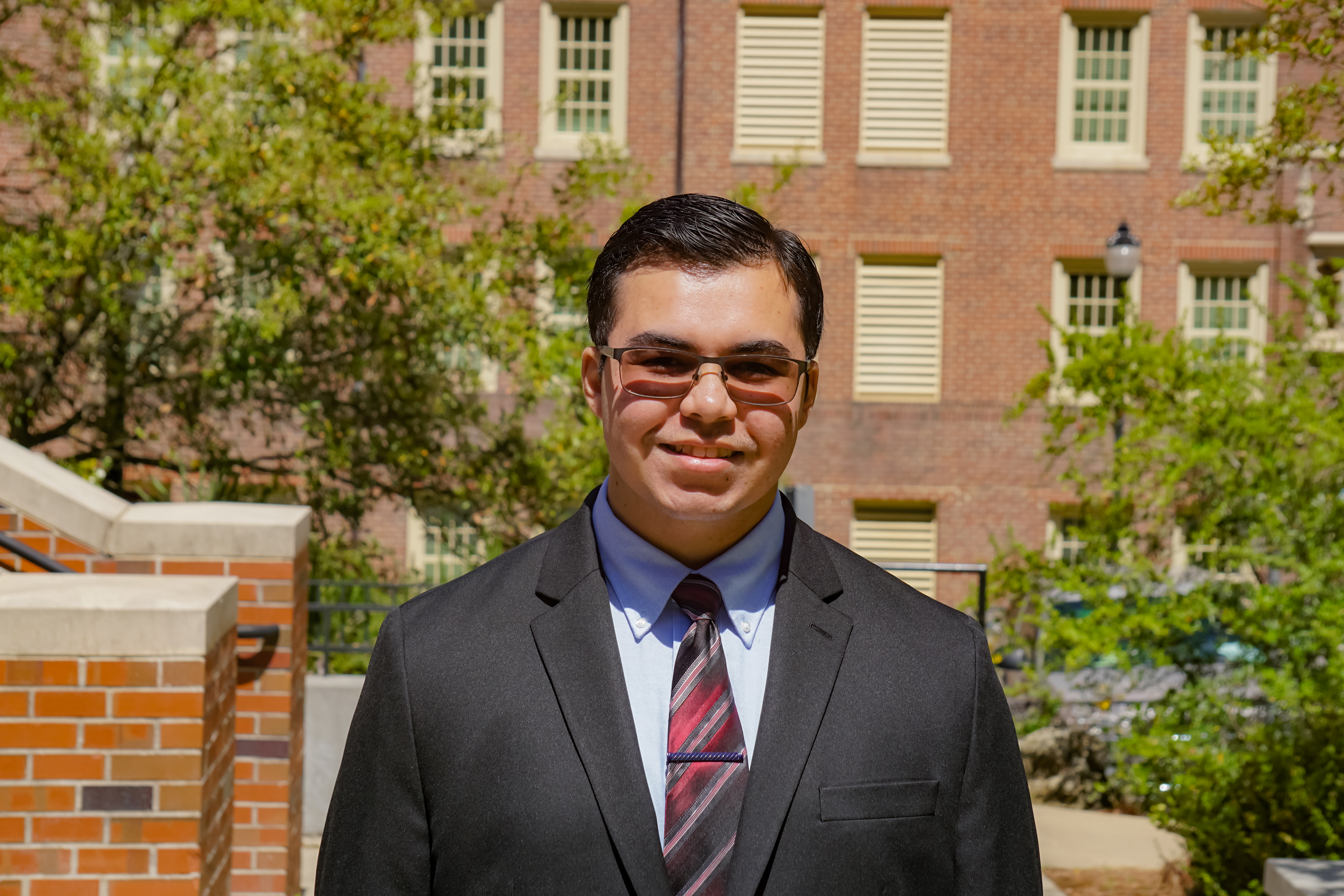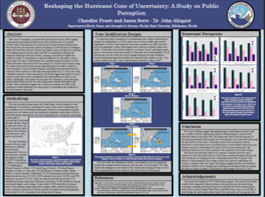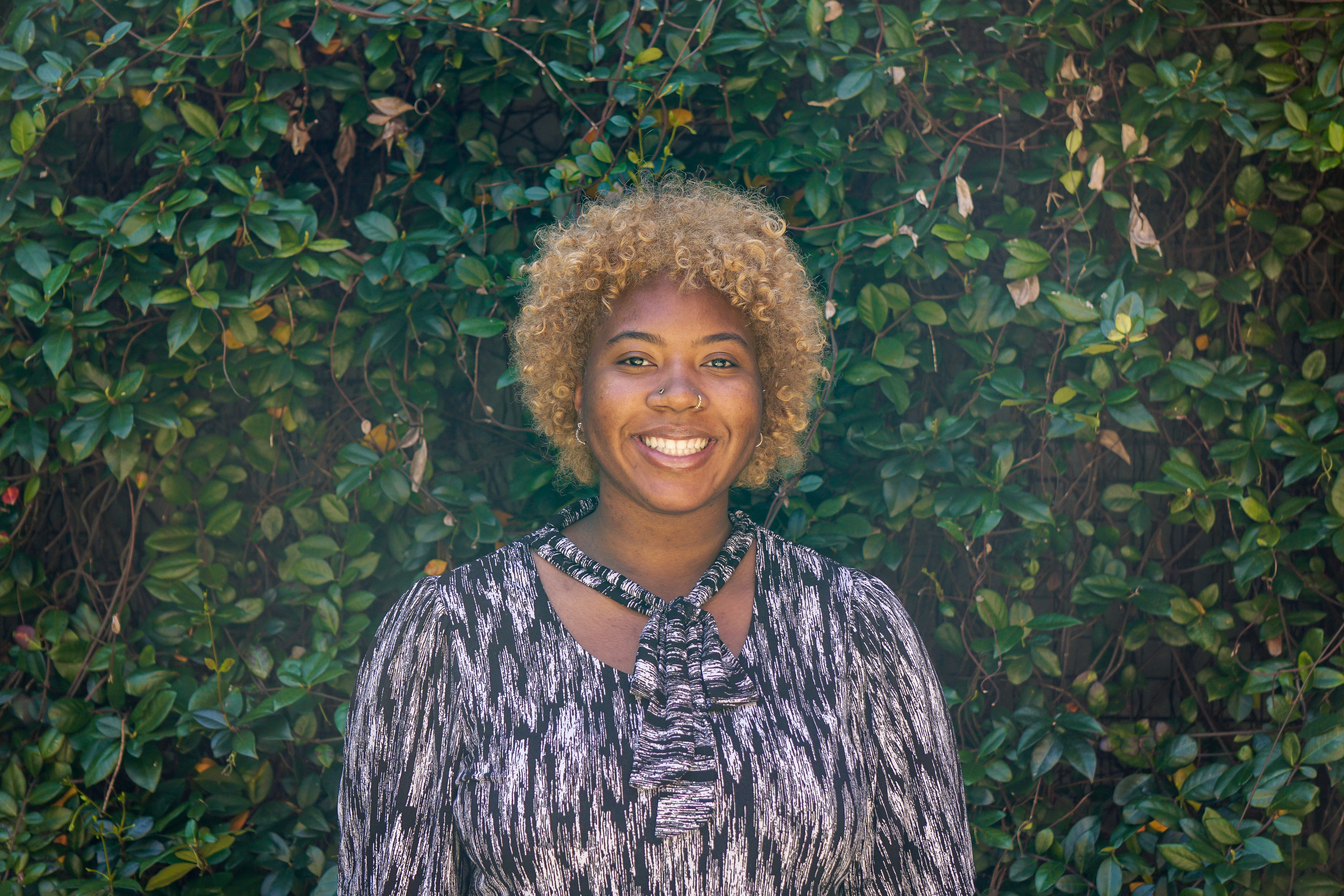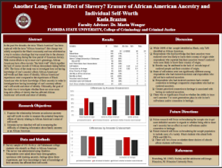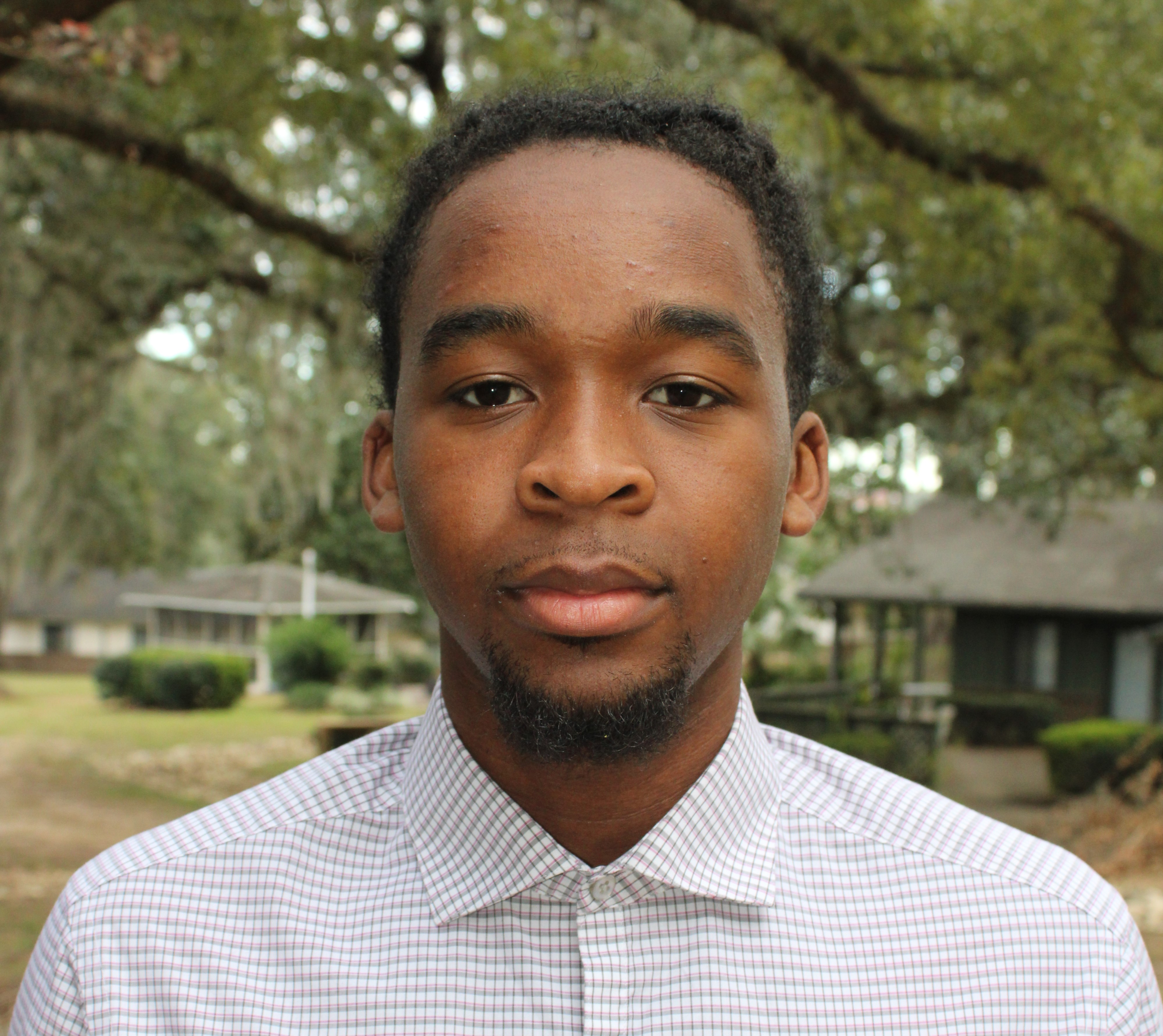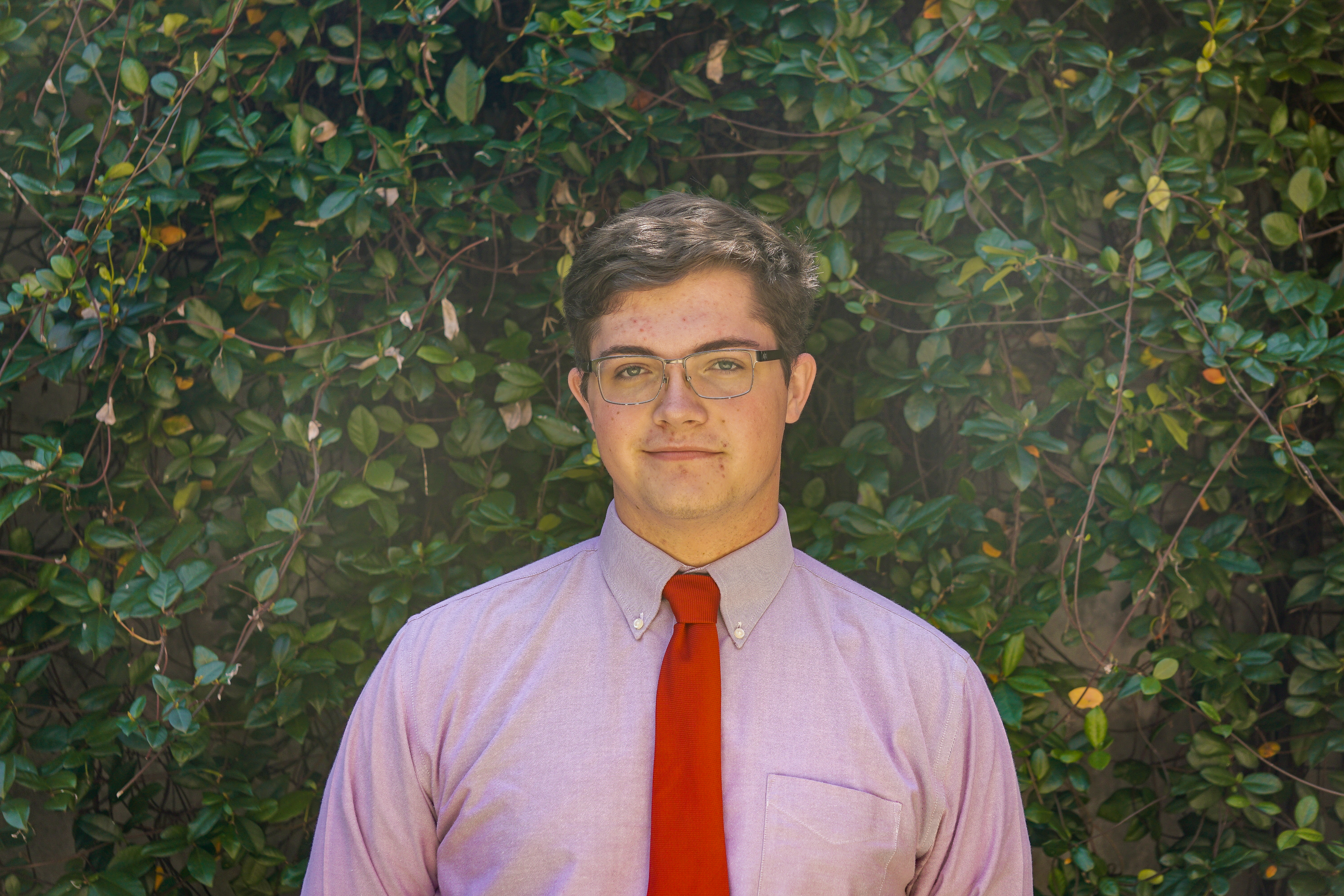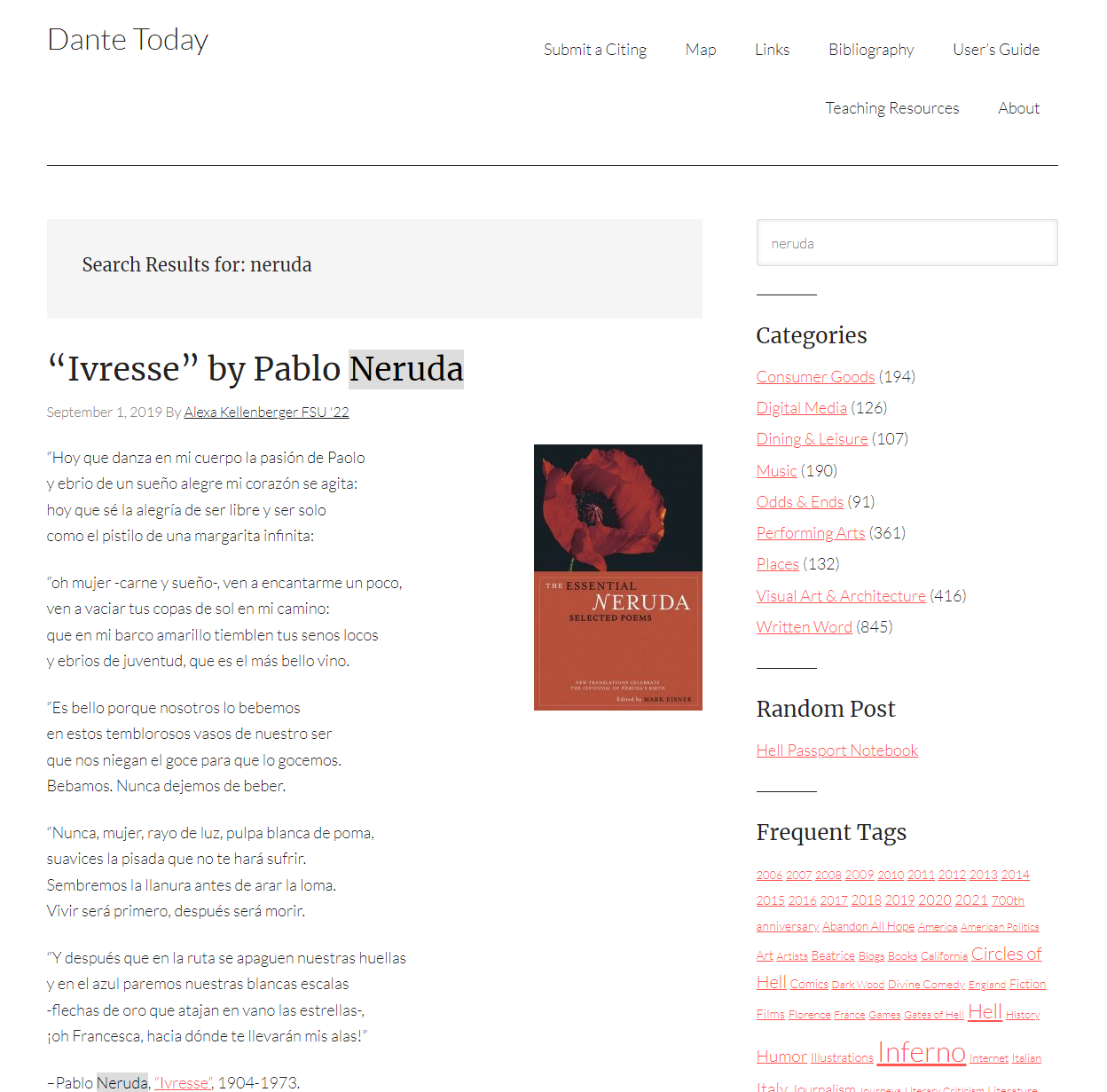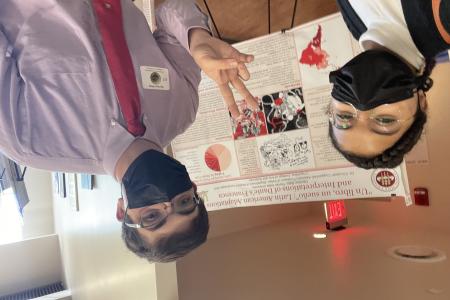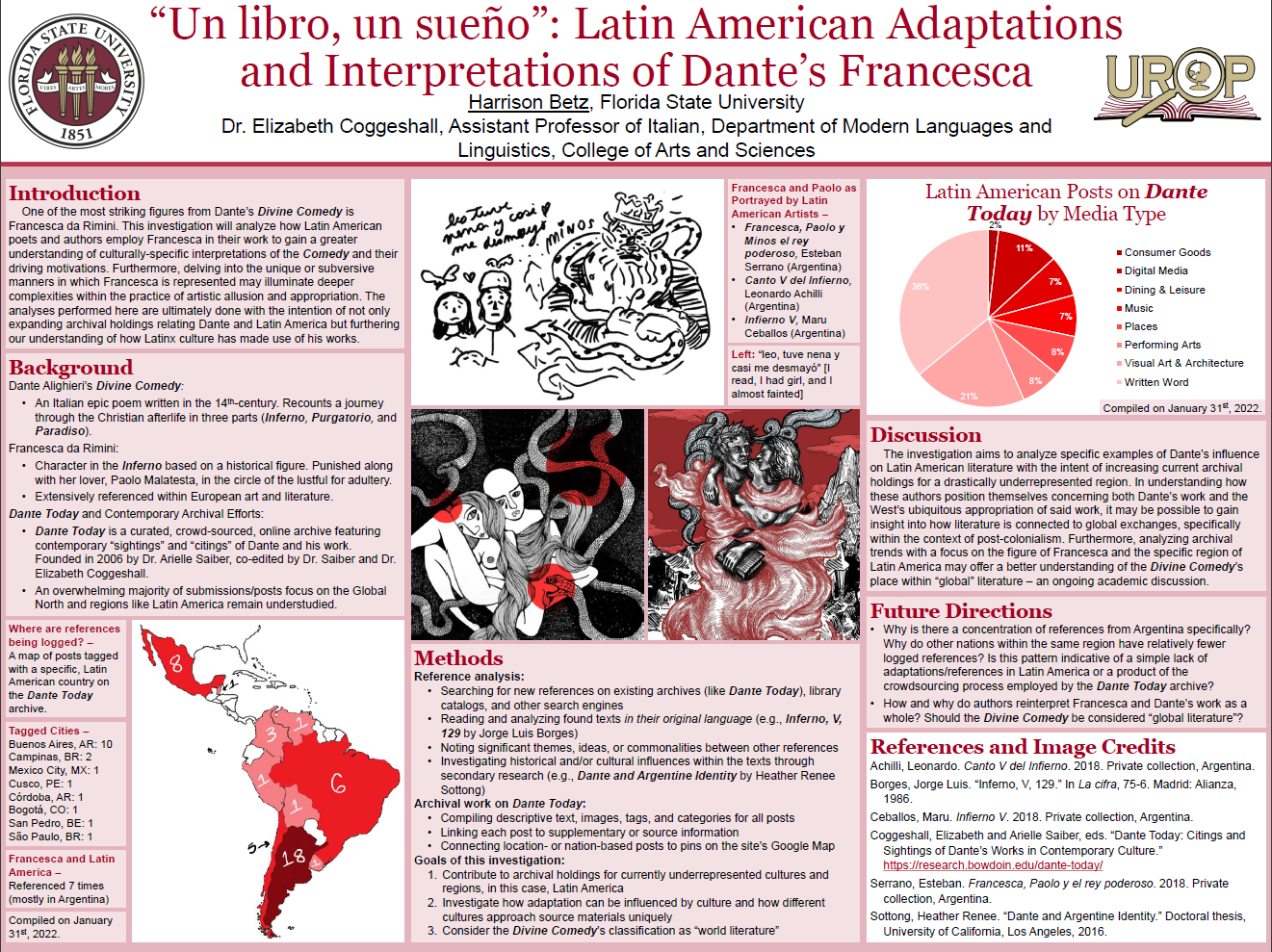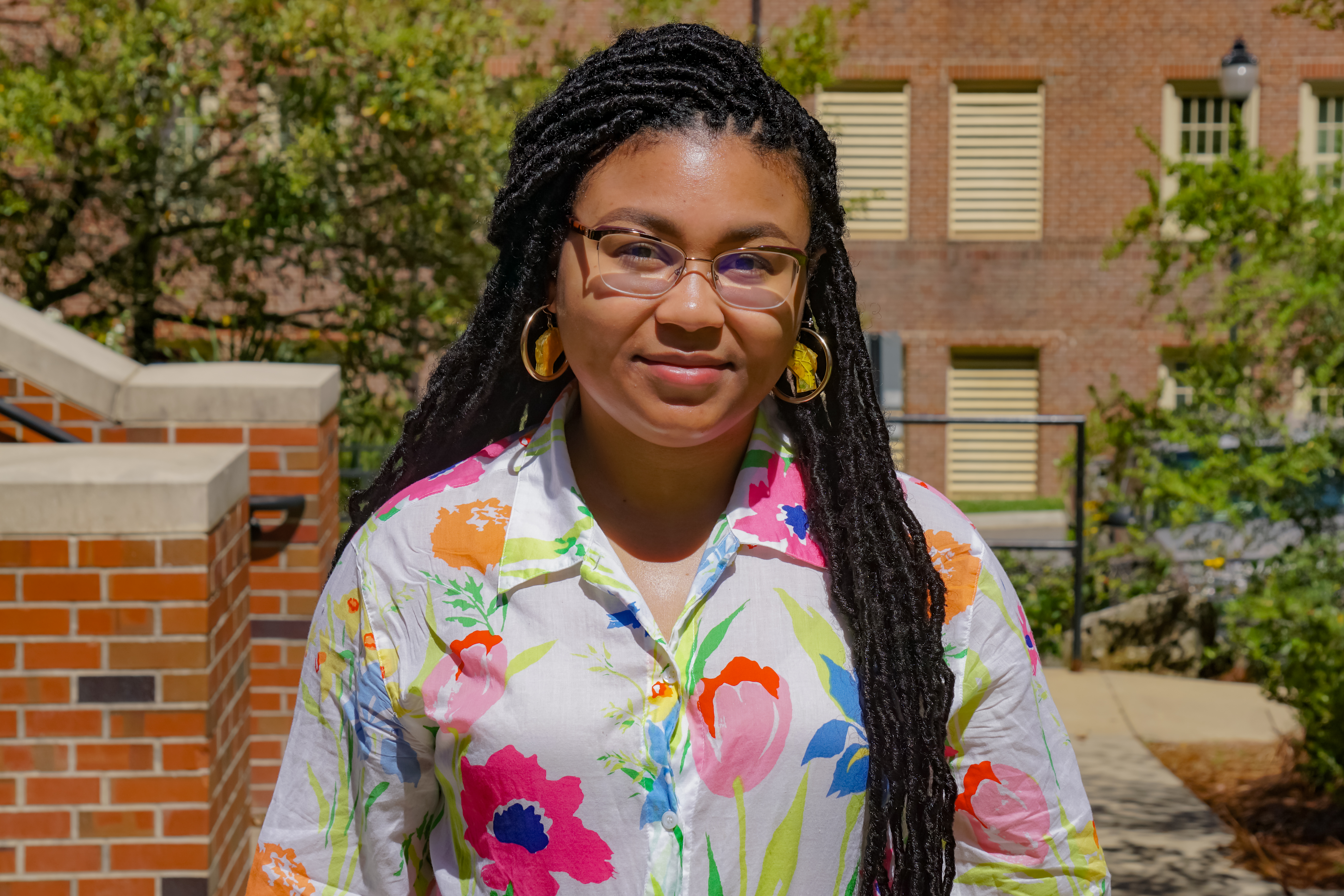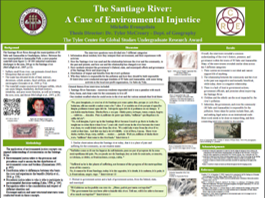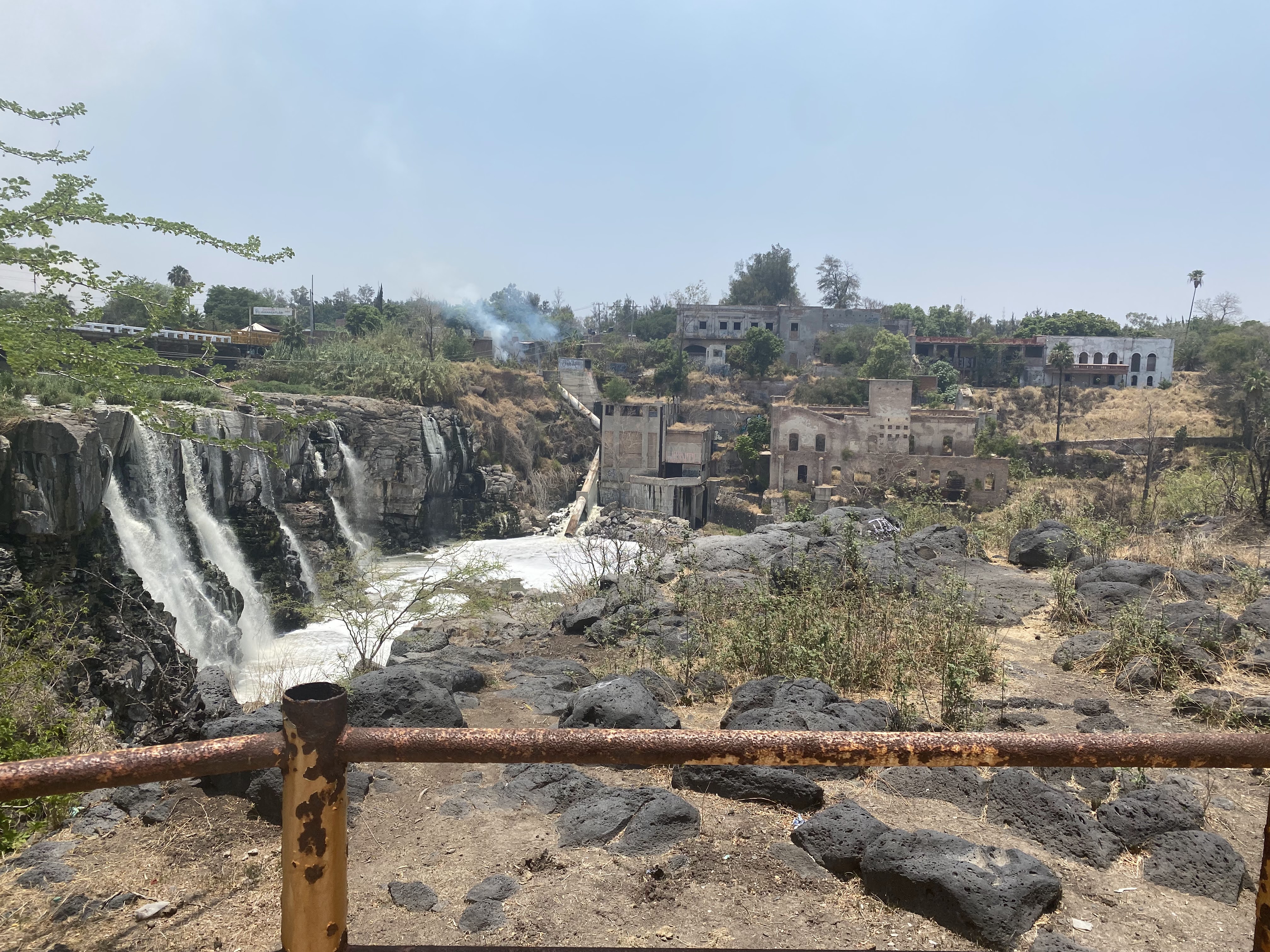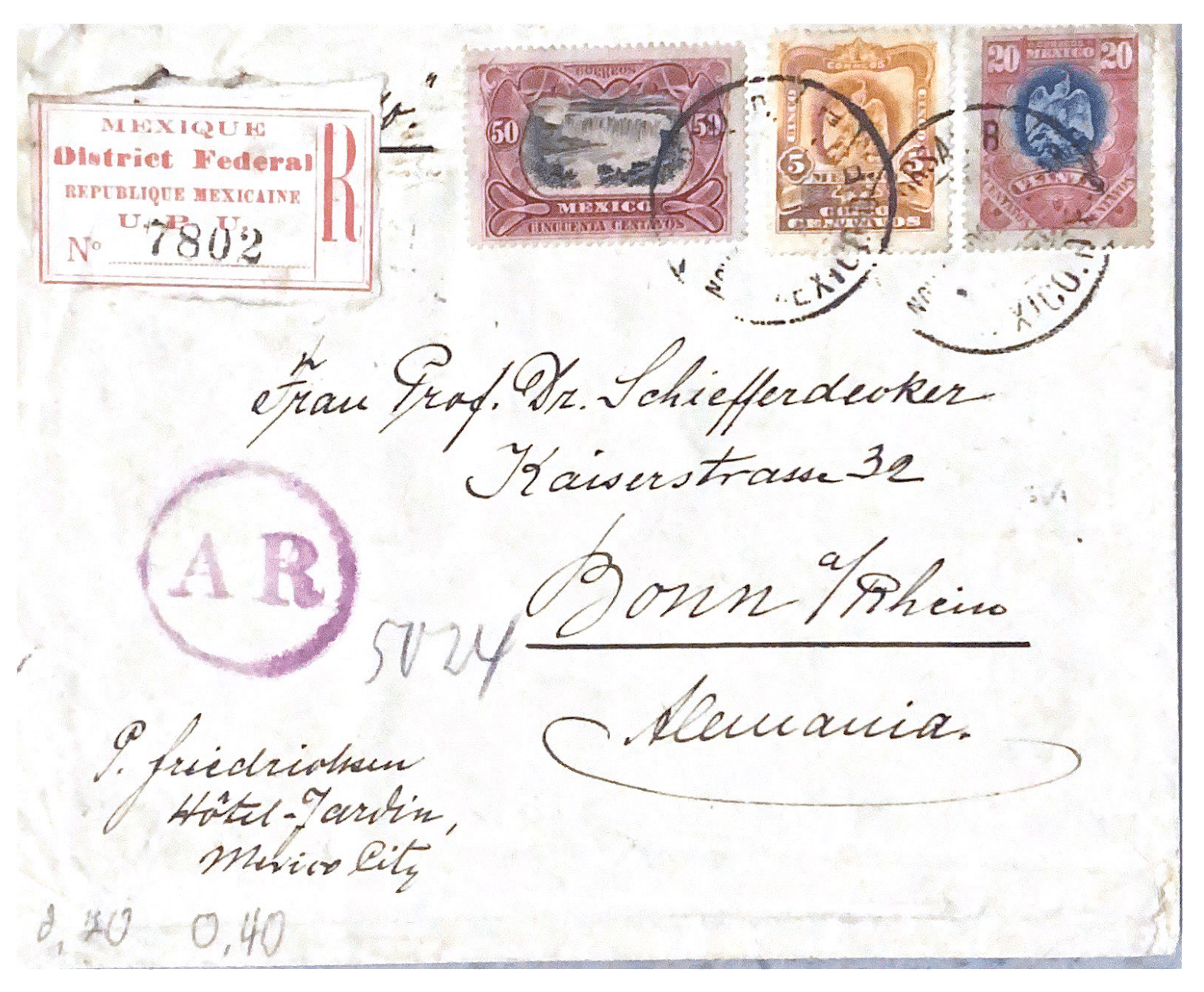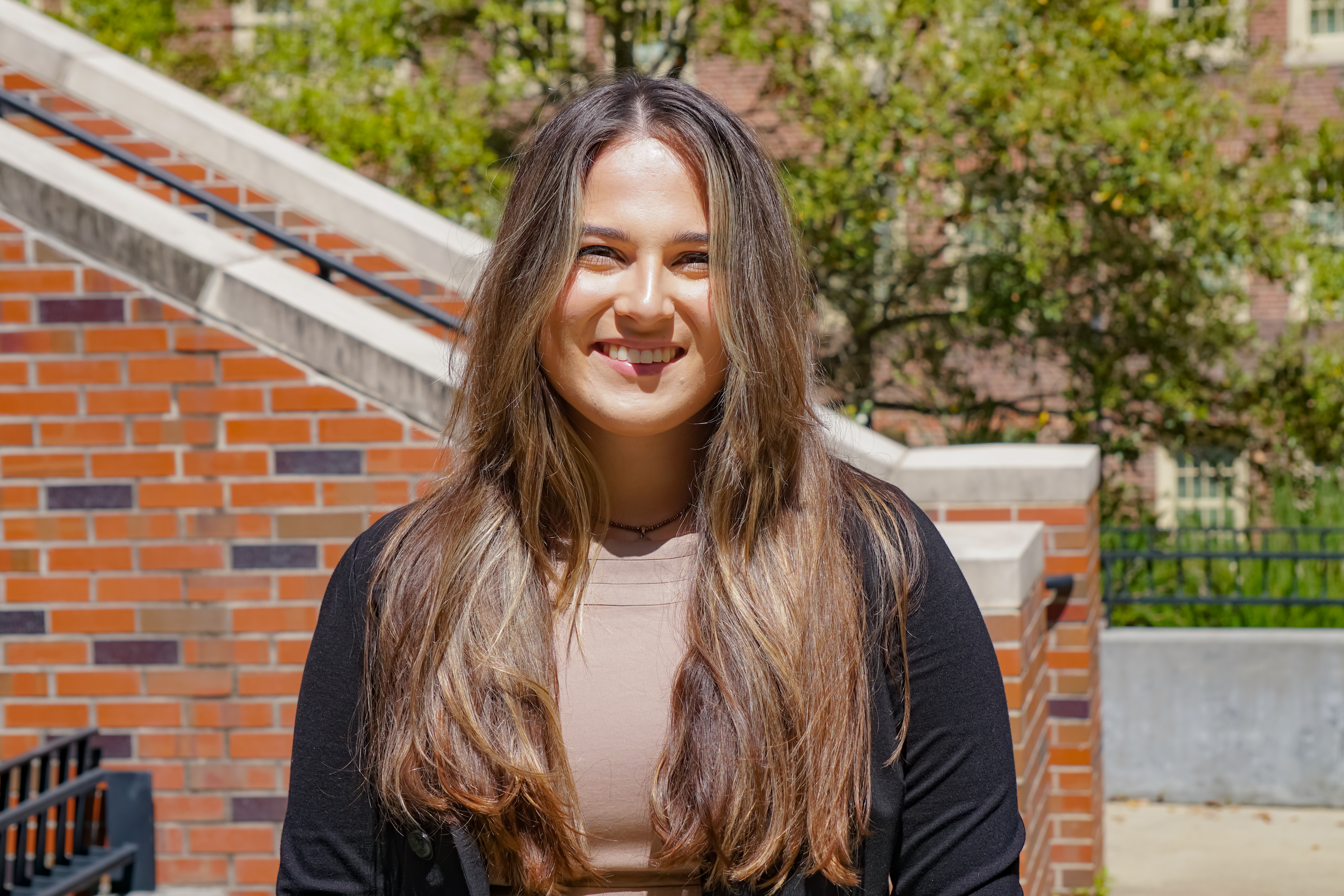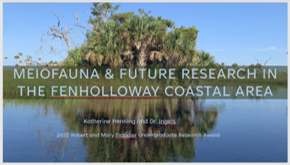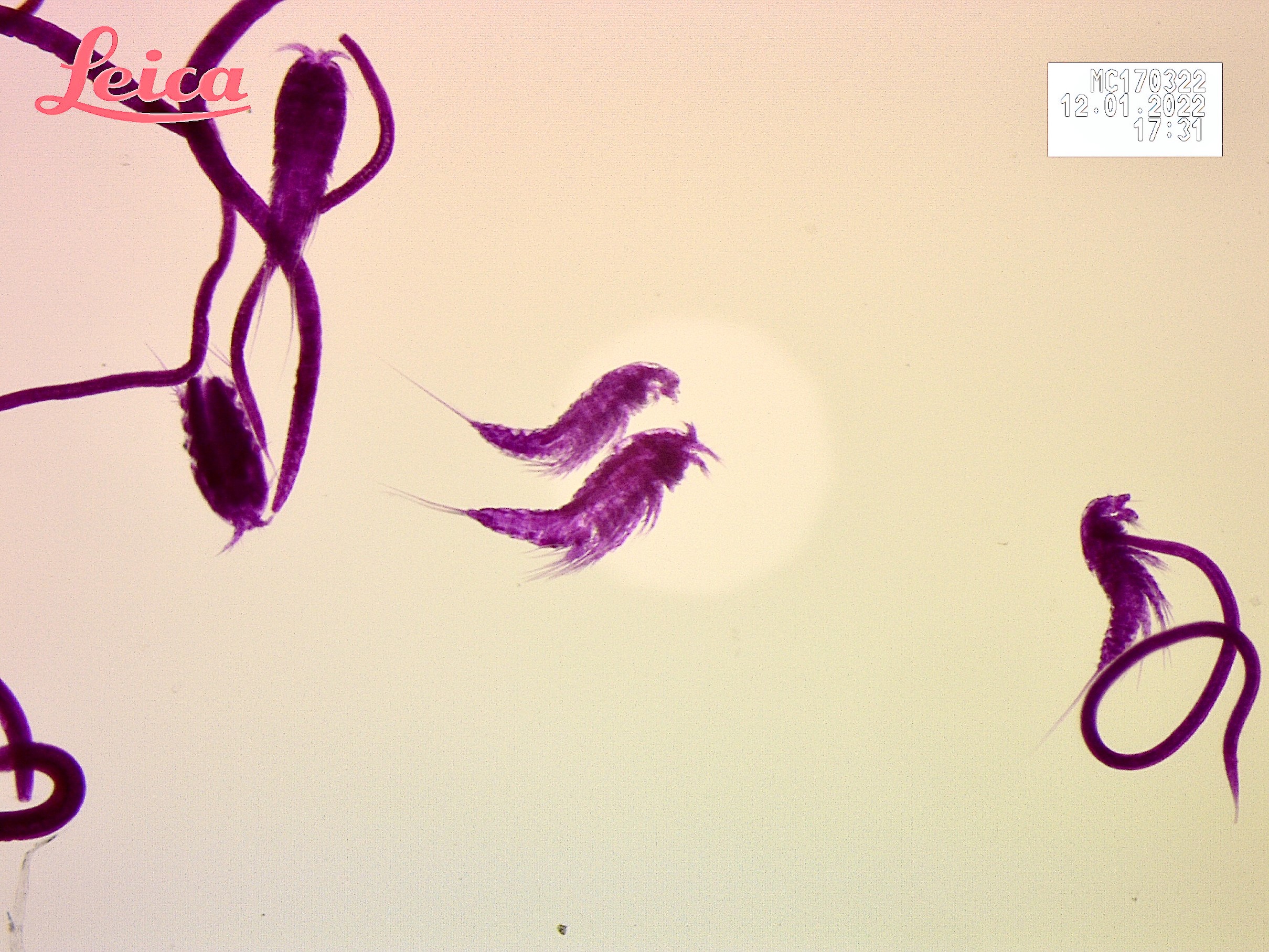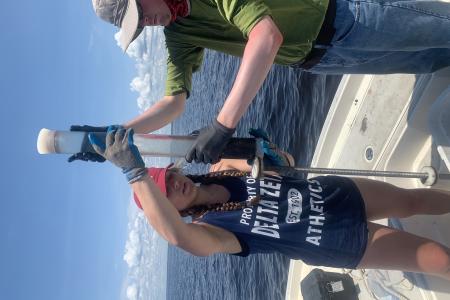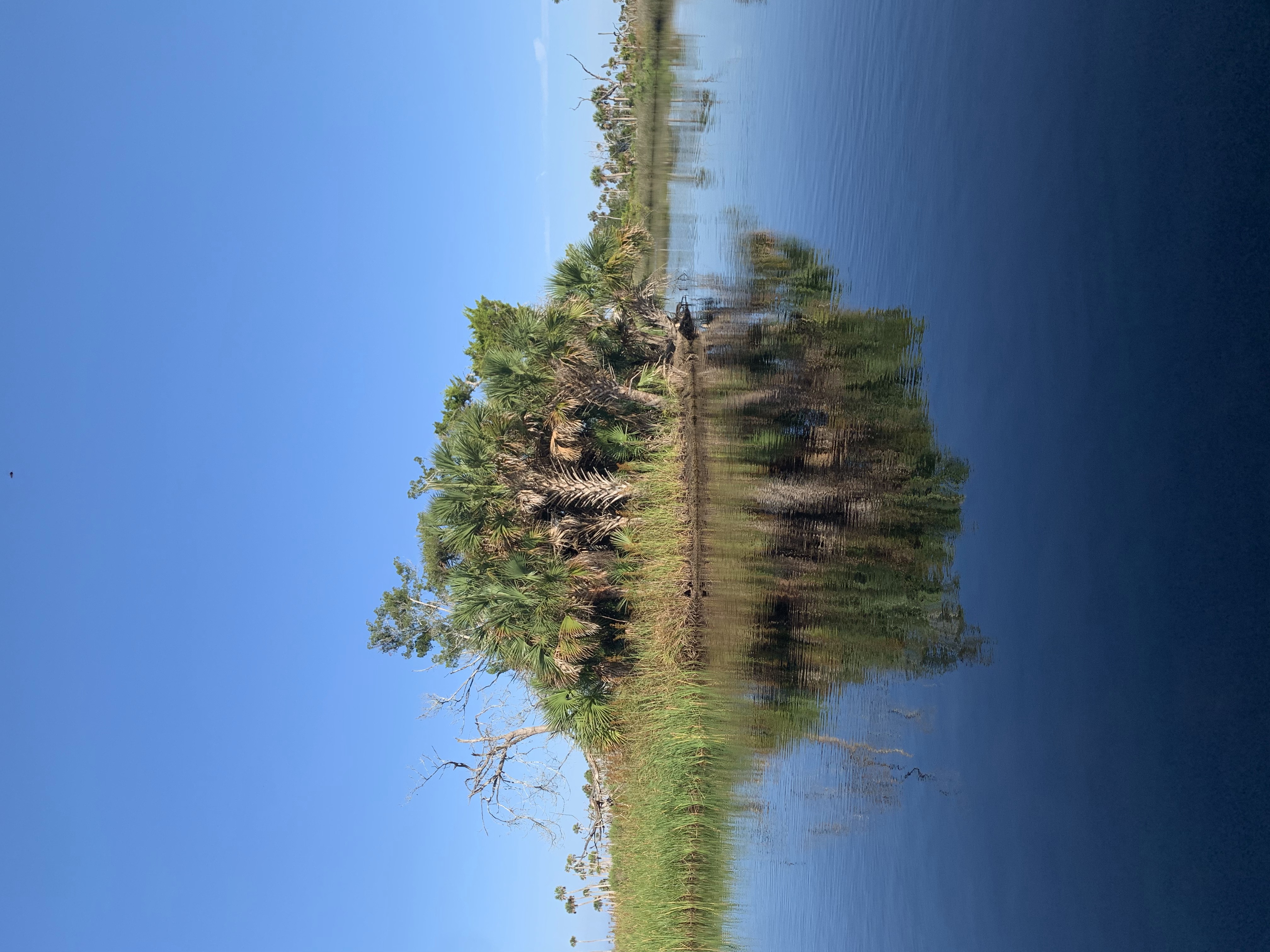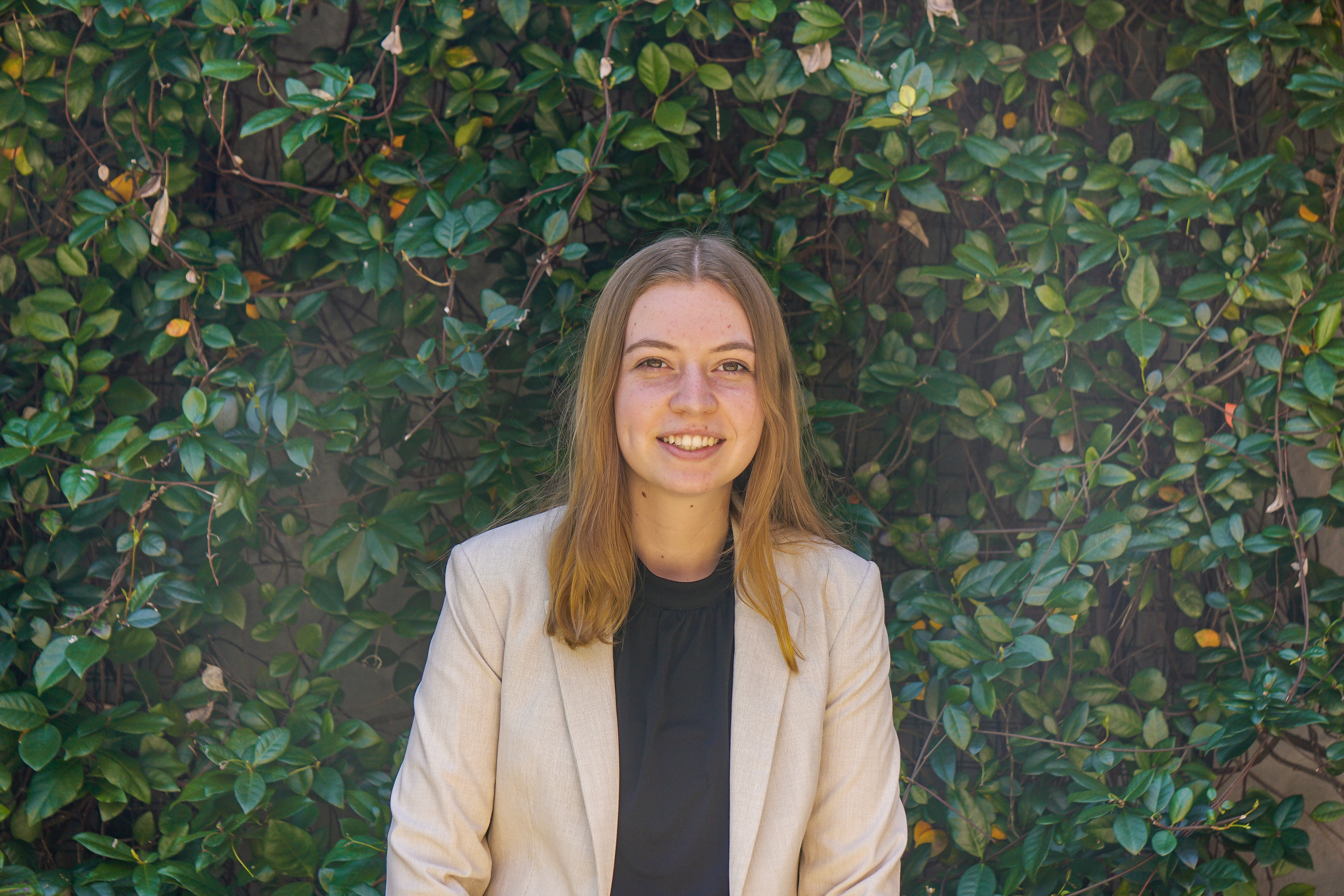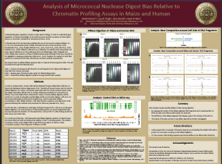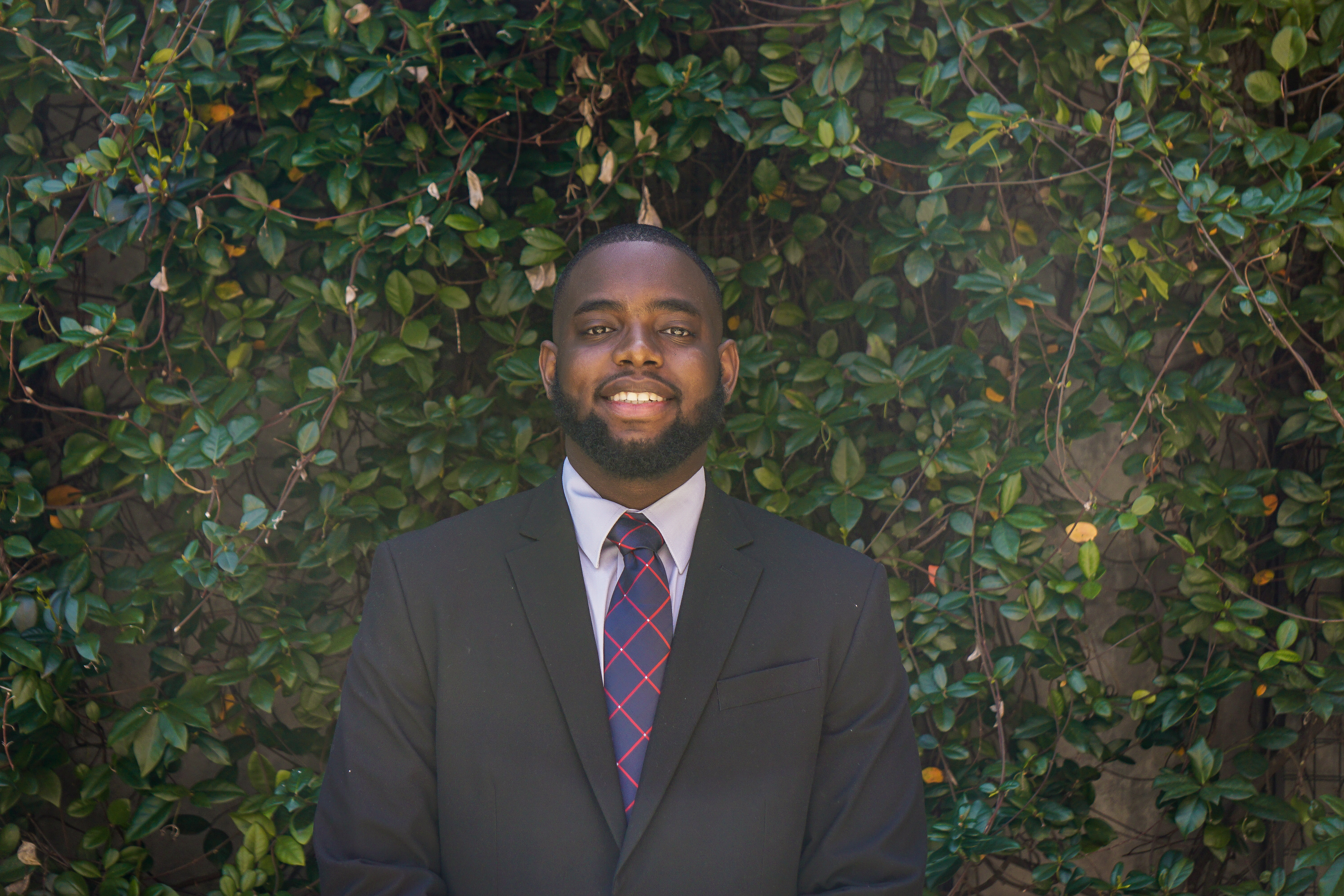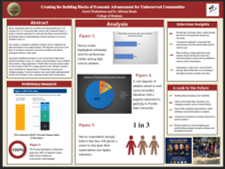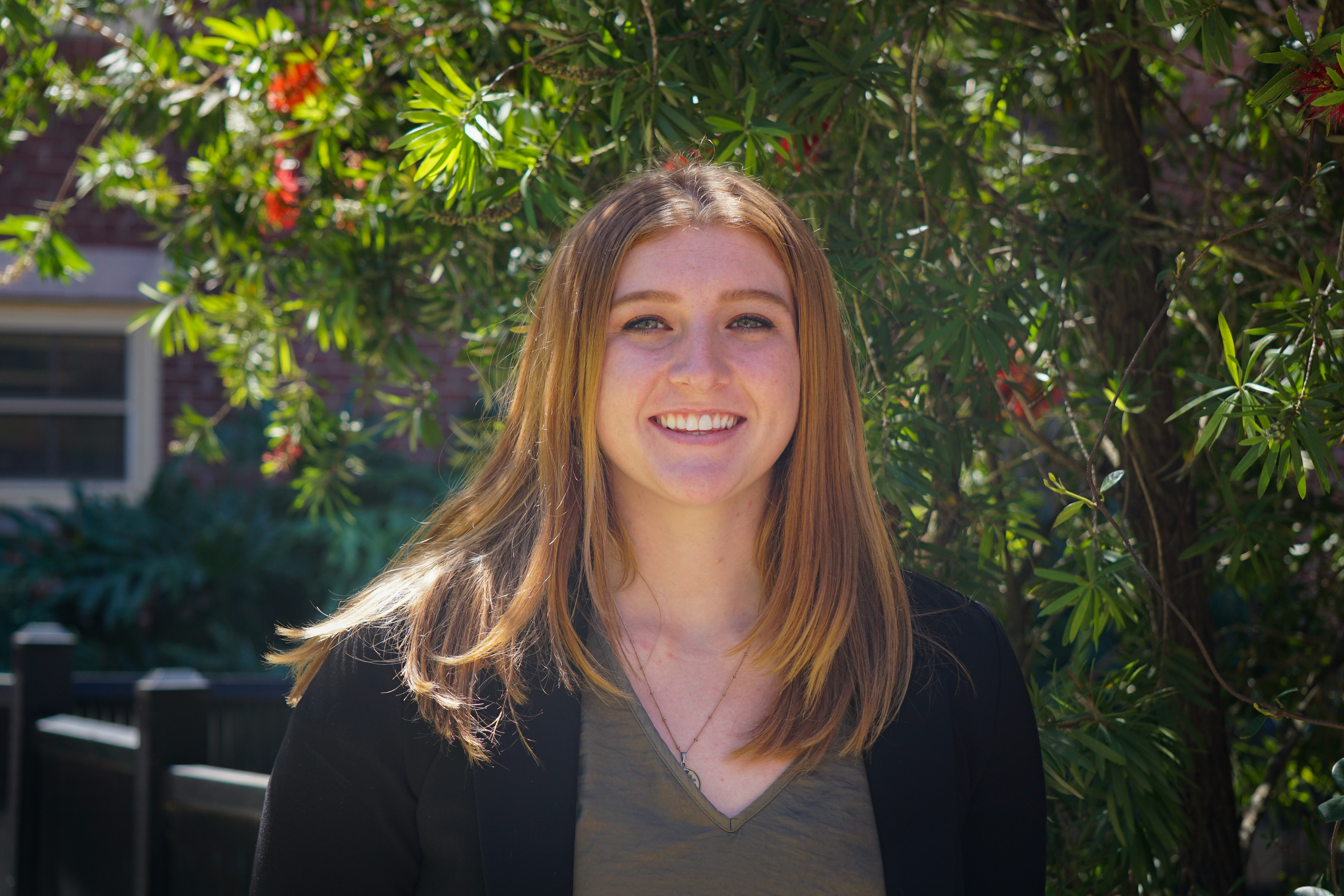President's Showcase
Aaron Serre He/Him/His
Supervising Professor: Dr. Jon Ahlquist
From the beautiful city of Tampa, Florida, Aaron Serre is an undergraduate student at Florida State University (FSU), majoring in Meteorology. Since childhood, Aaron has had a lifelong interest in the weather, specifically severe and tropical weather. In particular, Hurricane Irma helped him realize the importance of research in meteorology and informing the public of the weather. As such, he has participated in previous research relating to public perception of hurricane evacuations. These findings were presented at the 2019 annual National Weather Association meeting in Huntsville, Alabama. He has also taken part in informing the public on the “FSU Weather” Show as an on-air, Student Meteorologist. Lastly, he has observed and forecasted the weather with operational meteorologists at the National Weather Service in Tampa Bay, Florida. With his determination, he is destined to continue as a life-long learner in meteorology to improve forecasting capabilities and save lives.
Abstract
The Cone of Uncertainty, a popular National Hurricane Center (NHC) graphic, communicates the possible deviations from the forecasted track of a tropical system’s center. The deviations are determined by using historical forecast errors from the previous five hurricane seasons, resulting in a cone that does not change in width with each NHC advisory. Because this behavior does not reflect the variability of forecasting tropical cyclone tracks, the NHC is considering a redesign that integrates model data with each advisory, creating a cone that can expand and contract in width. To investigate how clear this behavior is to the public, a focus group study involving 124 participants was conducted during the summer of 2022. These participants were split up into four groups of 31 people with one group using the current cone and three other groups using differing cone widths to analyze a storm simulation. In this five-day simulation, participants described their levels of concern at three locations as a fictional storm approached the U.S. East Coast. After a qualitative analysis of these descriptions, the results suggest that people’s levels of concern for the storm were not hindered by the implementation of various cone widths. Additionally, when asked how the cone was constructed, every participant already believed that the cone was built using current weather information and models. These conclusions suggest that, in their next redesign, the NHC could implement a model-dependent cone that properly communicates the variability of the track forecast to the public.
Presentation Materials
Project Materials
Project Documents and Links
Kaela Braxton She/Her/Hers
Supervising Professor: Dr. Marin Wenger
Kaela Braxton is a third year senior majoring in Criminology and minoring in Sociology on a pre-law track. She is from New Jersey, but was raised in Orlando, FL. Kaela is President of the Black Law Students Association, CSD and Vice-President of the Society of Black Female Future Attorneys at FSU. Her freshman year, she served as a research assistant for Dr. Marin Wenger through the Undergraduate Research Opportunity Program, which inspired her to apply for the IDEA Grant in order to complete her own research with Dr. Wenger's assistance. After graduating, Kaela plans on earning her Master's in Criminology at FSU followed by law school.
Abstract
In the past few decades, the term “Black American” has been replaced with the term “African American”; this change was widely accepted in the Black community and was advertised as a way to reclaim a heritage that was erased due to the absence of record-keeping during the time period of American slavery. In recent years, African Americans have attempted to uncover their lost lineage through the use of genealogy websites and DNA tracing. Even with these advanced technologies, African Americans have often run into “the brick wall,” which signifies the lack of census records of African descendants dating before 1870, which was the year that the Federal Census began keeping records of African descendants. The focus of the study was to investigate how not having knowledge of one’s ancestry affects African Americans’ self-worth and their sense of identity. African Americans’ experiences were compared to the experiences of Black Americans who do have knowledge of their ancestry in order to investigate how having knowledge of one’s ancestry affects one’s self-worth and sense of identity. Furthermore, I investigated whether or not people who have unsuccessfully attempted to trace their ancestry experience heightened feelings of low self-worth and a weaker sense of identity in comparison to those who have either been successful at tracing their history or have not tried to do so. Ultimately, the goal of the study was to investigate whether there are some more long-term effects of slavery that have affected African Americans’ self-worth and sense of identity.
Presentation Materials
Project Materials
Project Documents and Links
Ezekiel Faulknor He/Him/His
Supervising Professor: David Montez
Ezekiel Faulknor is a fourth year student majoring in Information Communications Technology with a minor in Innovation. During the Summer 2022 semester, he interned at Tallahassee's Domi Station, a business incubator, as part of the Tech Fellows program. Ezekiel recently founded his own startup EzeWorks L.L.C., which focuses on user experience and design thinking. He is also volunteers as an instructor with Codepath helping train his fellow tech-focused peers.
Abstract
Nearly a quarter of all U.S. children under the age of 18 live with one parent and no other adults (Census, 2022). The prevalence of this experience in American society tells us we should study what affects it might have on children when they become adults. The focus of this study is on better understanding the potential effects of living in a single parent household may have on the development of an entrepreneurial mindset. Many factors play a role in if a child becomes a entrepreneur, but research suggests that there are several characteristic correlated to whether an individual chooses entrepreneurship as a career path. This project conducted interviews with entrepreneurs who grew up in a single-parent and those who grew up in multi-parent households to examine what role this might play in the development of an entrepreneurial mindset.
Presentation Materials
Project Materials
Project Documents and Links
https://ezeworks.com/
Bianca Noland She/Her
Supervising Professor: Dave Montez
Bianca Noland is a senior majoring in Commercial Entrepreneurship at the Jim Moran College of Entrepreneurship while pursuing a minor in General Business. In 2019, Bianca was accepted into FSU through the C.A.R.E Summer Bridge Program. Since then, she has connected with many other first-generation students who strive to overcome the struggles of being the first to get a degree in their families. Within her major, she has had the opportunity to network with other entrepreneurial-minded people and even created her own business with two other classmates, Bevvy Gear. Bianca was also accepted into the 2022 Tech Fellows program, where she interned at the nonprofit startup accelerator, StarterStudio, in Orlando, Florida.
Abstract
With no universal definition, a simple way to describe company culture is how you do what you do in the workplace. It comes down to the shared values, behaviors, goals, and attitudes that define your organization. When starting a business, establishing a company culture can be one of the biggest contributors to the business’s success. With numerous benefits, having a strong company culture can aid with a strong brand identity, effective onboarding, elevated productivity, and so much more. Unfortunately, many tech-based startups focus more on the tech portion of the business and don’t think about their company culture at all, which can be a huge issue. Not having a culture can create unwanted subcultures and can drive your business straight to the ground. However, it is much more than just simply creating a company culture, but also about maintaining it. For this project, I interviewed individuals in leadership positions of tech-based startups to understand how they have worked to create their company’s culture and how they are seeking to sustain it.
Presentation Materials
Project Materials
Project Documents and Links
Harrison Betz He/Him/His
Supervising Professor: Dr. Elizabeth Coggeshall
Harrison Betz is a second-year Honors student at Florida State University. Although he is currently double majoring in International Affairs and Spanish, Harrison was inspired to undertake his current research due to his longstanding love of literature, especially Dante Alighieri’s Divine Comedy. Harrison would like to thank all of the people that have supported him on his research journey so far, all of the friends who have proofread (and proof-reread) papers, all of the faculty members who have provided a firm structure of support (both academically and personally), his family, and, above all, his research mentor, Dr. Elizabeth Coggeshall. Grazie mille!
Abstract
In the centuries since its initial publication, Dante Alighieri’s poetic epic, the Divine Comedy, has undergone repeated cycles of adaptation by authors from around the world. As each writer takes up the mantle of adaptation, changes are imparted upon the original work, these being a product of the place, time, and cultural contexts in which the author finds themself. While the adaptive efforts of many Western authors (most hailing from Europe and North America) have been examined in countless iterations, subaltern works that reference Dante have not received equal critical treatment. Recent publications have begun to partially rectify this epistemological gap, focusing on the contributions of authors writing from traditionally marginalized regions of the world, including Latin America. This project focuses on two Chilean authors and their poetic adaptions of the semi-historical, semi-fictive character of Francesca da Rimini, a sinner punished alongside her extramarital lover within Dante’s circle of lust. Both “La Francesa” by Roberto Bolaño and “Ivresse” by Pablo Neruda reimagine Francesca and her narrative, processing the unique psychological and emotive aspects of her sin and situation to create distinct-yet-overlapping adaptations of the infernal episode. Through in-depth analysis of these texts and their contexts, insight may be provided into not only these authors’ understanding of Francesca but also the broader themes which underscore Latin American interpretations of Dante’s Inferno as a text of foreign and colonial origin, which has managed to become deeply rooted in that region’s cultural background.
Presentation Materials
Project Documents and Links
Michelle Evangelista She/They
Supervising Professor: Dr. Tyler McCreary
Michelle Evangelista is a Senior pursuing a dual degree in International Affairs and Information Technology. As part of the Undergraduate Research Opportunity Program (UROP), Michelle conducted research with Dr. Samuel-Holley Kline on the histories of mining extractivism in Indigenous Veracruz, Mexico. Following UROP, Michelle has combined her passion for environmental justice, Latin America, and research into her undergraduate Honors thesis. Her thesis focuses on environmental injustice in the Santiago River in Mexico through various lenses such as geography, anthropology, history, and sociology, under the direction of Dr. Tyler McCreary.
Abstract
The Santiago River or Rio Chignahuapan, the power of nine rivers in Nahuatl, is one of the most polluted rivers in Mexico that winds through the towns of El Salto and Juanacatlan in Guadalajara, Mexico. As El Salto grew into the industrial hub for Guadalajara, so did problems of pollution with little enforcement of environmental laws and corruption. The frothy foam and overpowering stench from waste and toxins disposed into the river permeates homes and residents’ bodies, leading to cancer and other health complications. The river can be seen as a case of environmental injustice, thus requiring acknowledgment of others’ experiences to understand the cultural significance of this case. With document analysis and interviews, the culture, knowledge, and histories of the people living in El Salto and Juanacatlán are used to recognize how pollution has affected the relationship between the river and local communities and how governments recognize and acknowledge different identities, like local Indigenous identities. Through this project, more is understood on how the power of the people has been taken back by themselves to achieve environmental justice through self-determination and reveal if one day, the power of the nine rivers can be restored to the Santiago River.
Presentation Materials
Project Documents and Links
Katherine Henning She/Her/Hers
Supervising Professor: Dr. Jeroen Ingels
Katherine Henning is a junior majoring in Environmental Science. For as long as she can remember, she has been amazed by the beauty of our natural world, and this translated into a passion for environmental conservation. Katherine has found my calling in research, specifically it's ability to understand the world around us so we can protect and conserve natural spaces. She currently works as a research assistant in the Meiolab at the FSU Coastal and Marine Laboratory. Katherine is also a Tallahassee local and is especially interested in conserving the beautiful natural environments of the Panhandle’s coasts. She is an active member of the FSU community, as a Honors student and also a member of the Delta Zeta Sorority. Katherine plans on continuing her studies in graduate school for marine biology and related disciplines.
Abstract
I have assessed the ecological status of the Fenholloway River in Perry (a small city in Taylor County, North Florida). For this, I used microscopic organisms called meiofauna, which are known for their capacity as ecological indicators. Following decades of pollution by a pulp mill, the degraded Fenholloway has seen restorative action recently through effluent treatment and relocation of the effluent discharge point in 2020 to the mouth of the river at the Gulf of Mexico. Ecosystem health is currently being assessed using meiofauna (benthic invertebrates <1mm), specifically standing stocks and diversity of nematodes and copepods. Samples gathered from summer 2019, 2021, and 2022 have been compared with samples from the Econfina River (unpolluted control). To add a human dimension, this project included outreach to communities in the region via community forums. These forums were held in public libraries. They created a space to engage with the communities of Wakulla and Taylor County, provided education on our research that bridged the gap between “us and them”, and also provided a space for discussion of people’s opinions on the river, the mill, and the research that has been conducted. We also have opened lines of communication with the Foley Cellulose Mill to share information and educate each other.
Presentation Materials
Project Documents and Links
https://news.fsu.edu/student-stars/2022/07/19/katherine-henning/

